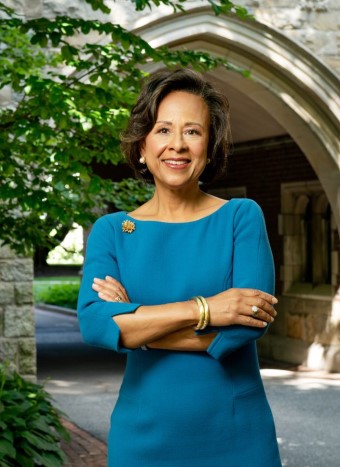
As I have long believed, women’s health must not be left to chance. This conviction is what drives me—and in large part, has propelled me throughout my medical career. Now, as Wellesley’s president, it lies at the heart of my deep commitment to expanding our focus on health and wellness at the College.
For young women especially, the relationships between health and success, growth and happiness, are vitally important, carrying profound consequences. It is critical that we are prepared to meet the needs of the students who come to us.
In 2015, an estimated 3 million adolescents aged 12 to 17 in the United States (that’s nearly 13 percent) had at least one major depressive episode in the previous year, according to the Substance Abuse and Mental Health Services Administration. And a study by the United States Department of Health and Human Services found rates of depression among girls are more than double that of boys.
When students come to college, they remain at risk. In 2016, the American College Health Association found that 62 percent of undergraduates had felt “overwhelming anxiety” in the previous year.
Our students can only make the most of their intellectual strengths and fulfill their potential if they are as physically and emotionally strong as possible. We must help Wellesley students cultivate resilience, resolve, and emotional balance.
The Stone Center Counseling Service was founded in 1981 thanks to the foresight and generosity of the Stone family. With a remarkably forward-leaning mission for its day, the Stone Center committed to a three-pronged approach of research, clinical services, and prevention. Today, the College looks to honor, strengthen, and expand that vision.
We have recently expanded our resources to meet the increasingly diverse needs of our students. For example, we hired a student-care coordinator, a crucial new member of the team. As an in-house case manager, her duties will be wide-ranging and will free up our counselors to devote more of their time to supporting our students directly.
While the Stone Center Counseling Service has long offered students online self-assessment tools, we have added an effective new program called WellTrack to help students develop the skills to cope with mild feelings of depression and anxiety, the top two reasons our students seek counseling. The Stone Center has also launched an enhanced online scheduling system to improve students’ access to services.
We have ambitious goals for reimagining health and wellness at Wellesley that will bring together partners from across the campus and the greater community. Spearheaded by our new Vice President and Dean of Students Sheilah Horton, who is already bringing a galvanizing vision and energy to these areas, we will look to integrate counseling more directly with health services, recognizing the close connection between physical and emotional health. The creation of a wellness initiative will begin by exploring programs already in place on campus to understand their impact and potential scalability.
One model we will study is reflected in interdisciplinary, experiential courses like the first-year writing class co-taught by Connie Bauman, professor of the practice in the Department of Physical Education, Recreation, and Athletics, and Jeannine Johnson, senior lecturer and director of the Writing Program. The students practice mindfulness techniques, collect data about themselves, and write about the science behind wellness. I attended a class session and saw how students are learning about effective wellness habits, and how to manage stress and anxiety.
To fully understand what drives health and wellness on our campus, we are also embarking on a collaboration with the Harvard T.H. Chan School of Public Health. We will work together to approach health and wellness on Wellesley’s campus as a public health initiative, which, of course, it is. We will learn about the most current research and evidence-based strategies to teach healthy behaviors such as learning better sleep habits, avoiding alcohol and other drugs, and preventing sexual assaults.
Wellesley is both a rigorous institution of learning—dedicated to the highest standards of scholarship—and a place committed to developing a deep understanding of what a healthy community looks like and how one is created. In this way, Wellesley is poised to change how we approach the health and wellness of young women. We do this because it is the right thing to do for our students, and because these same young women, and alumnae like you, are the surest way to create a future where all can thrive.






